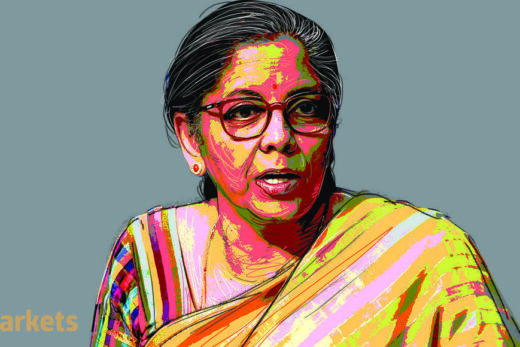How do you look at the policy statement announced by the governor? He has hiked the inflation forecast and maintained that inflation is going to be very close to the RBI’s upper limit.
RBI had taken a decision much earlier to tolerate a higher level of inflation in trying to support both growth and stability of the financial system. This is basically a reiteration of that. I am glad that the forecast has been revised up because they are in keeping with the current trends and the trends that are likely to pan out. What he has done in terms of the liquidity measures are important because there was some implicit normalisation in accepting higher cut off yields in the earlier bond auctions and that has been followed through with an increase in the variable repo amounts that they will use to manage liquidity.
So despite the fact that he has been soft on inflation and talked about the transitory nature of inflation and has also discussed the fact that there are comforts coming in the form of better food production, etc, there is a concrete move through the variable reverse repo rate mechanism and increase in the quantum to bring liquidity to lower levels as there has been a tremendous surge in liquidity over the last month-and-a-half. So despite the commentary, we are beginning to see the RBI pay heed to increasing inflation and inflationary expectations and managing it principally through the liquidity route.
Would you want to justify what the governor’s commentary was?
We have been through an extreme shock. We are not in a normal situation where because of some kind of cyclical upturn, inflation has picked up a little. There are identifiable transient elements to inflation, take the cost of freight for instance which is increasing the cost of imported goods and take also the gorilla on the basketball court — fuel prices where you have 200% taxes which is) feeding through to all different categories of goods and services. Given these things, to expect the RBI to do the heavy lifting of pulling the economy out of a deep shock or consequences of a deep shock retaining financial stability and yet somehow be super aggressive on inflation, is a bit of a tall ask.
I am glad they are following a sort of easy does it principle. We should avoid any kind of disruptive action or communication at this stage.
I am on the same page as the RBI and the governor’s statement and I understand that inflation is regressive but there are elements to inflation that should be handled through the fiscal side, lowering indirect taxes on fuel and there are clearly identifiable transient elements to it and it is not as if nothing has been done. As I said, despite a slightly soft commentary, some unanticipated measures have been taken on the liquidity side and that is the best that they can do.
We had unanimity on the policy rate but we did not see that kind of unanimity on the nominated stance. Jayanth Varma did not agree with keeping the stance accommodative. How would you read it from Jayanth Varma’s perspective?
There is no doubt that at some point we will have to do something about inflation. Whether we do it aggressively or whether we look at the risks on the growth and stability front and do the normalisation — be it liquidity normalisation or policy normalisation in a gentle calibrated manner without rocking the boat — is really the issue. How you view inflation, whether you see enough transitory components in it, whether you see the high fuel pump prices which are being pushed up through are important.
I think this was an extremely responsible fiscal policy. Going by the headline, there is reason to raise a red flag but I would not get too carried away by the response and certainly not change the accommodative stance at this stage. That would be a disaster.



